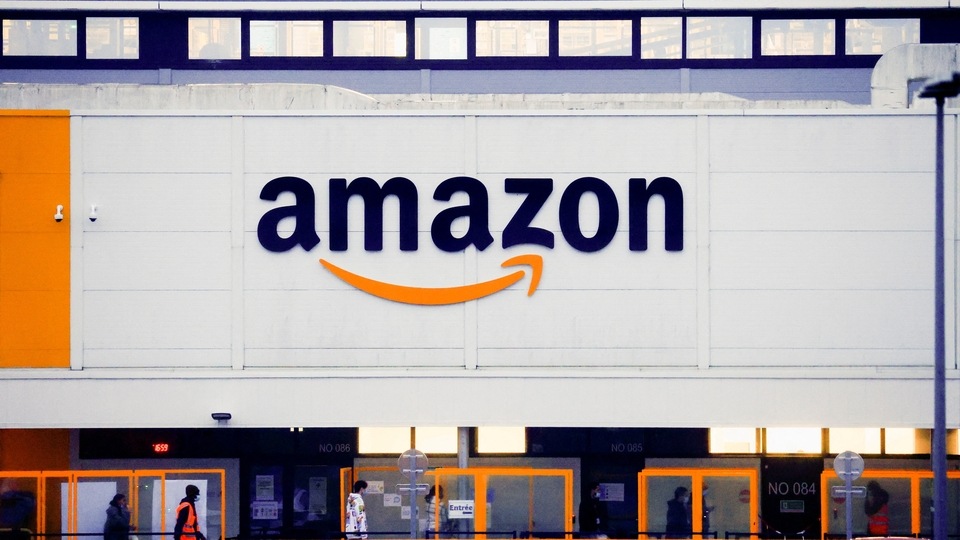Is Opendoor the Amazon of Buying Homes or Just Another Carvana?
Opendoor’s ability to make money come rain or shine is about to be tested. The future of iBuying is at stake.

It's rough for capital-intensive and unprofitable startups right now. Anything associated with the cooling housing market or SPACs is also being marked down. Opendoor Technologies Inc. ticks many of those boxes — yet it might be unfairly maligned.
Founded in 2014, the San Francisco-based company pioneered iBuying, a whizzy name for digitally-enabled home flipping, though it abhors the description.
It went public in 2020 via a blank-check firm created by “SPAC King” Chamath Palihapitiya who called it his “next big 10x idea.” Others proclaimed it the “Amazon of homes.” I was more skeptical. Last year, it sold more than 20,000 homes and lost more than $100 million, excluding stock-based compensation.(2)
Disrupting a very large market, buying and selling big-ticket items at scale, and removing friction from an often frustrating transaction all remind me of Carvana Inc.'s approach to selling used cars online. But those similarities aren't helping right now: Carvana's debt-fueled expansion went off the rails earlier this year as demand unexpectedly slowed, causing the stock to collapse.
So far, Opendoor's execution has been better, though its shares have fallen almost as much, hurting retail investors and hedge fund backers like D1 Capital Partners LP and Altimeter Capital Management LP. Dan Loeb's Third Point LLC sold its Opendoor stake during the first quarter of 2022.
Opendoor's $3 billion market capitalization is now only a little more than its cash pile. Nearly $1 billion of its 0.25% coupon convertible bonds maturing in 2026 are priced at less than 60 cents on the dollar, or an eye-watering yield to maturity of 14%. One concern, though, is what happens to Opendoor's inventory of 13,000 homes if house prices suddenly go into reverse.
Financial markets seem to be saying that Opendoor should shut down rather than try to navigate the housing downturn. It wouldn't be the first: Zillow Group Inc. closed its iBuying unit last year after its algorithms failed to accurately forecast house prices. That misadventure has fueled investor worries about the riskiness of iBuying.
Even though Opendoor is confident that it can make money in any housing market, it's never experienced a prolonged slump. The company's margins were thin even during a red-hot market, in part due to high advertising spend to fuel growth. Now, soaring interest rates (which impact housing demand and Opendoor's own borrowing costs) and cooling housing prices are set to become headwinds.
But unlike tech and real estate peers that have announced layoffs, Opendoor is still expanding. It recently starting buying homes in New York and New Jersey, for example.
In theory, it shouldn't matter so much whether the housing market is going gangbusters or in a funk. Opendoor charges a 5% fee for making a quick cash offer on a home and collects the spread between where it buys and sells the property, including income from ancillary services such as title insurance and escrow. It thinks of itself as a “market-maker,” not a home-flipper.
It has implemented that strategy pretty well thus far. Margins have improved as the company has become more efficient at inspecting properties and preparing them for sale. While frothy house prices have helped — because a home is worth more by the time Opendoor comes to sell it — this pricing uplift accounts for a relatively small part of its better unit economics, the company claims.(1)
Opendoor made a bottom-line profit for the first time in the first quarter of 2022, and the quarter that's ending now is shaping up to be just as good. (It began pricing home purchase offers more conservatively at the end of last year and so will have benefited as house prices continued rising.)
Of course, Opendoor would take a financial hit if it overbids and prices fall more than anticipated before it completes a sale (Zillow's mistake caused it to write down more than $400 million of inventory). Any increase in the time it takes to sell homes — typically around 100 days — would also inflate holdings costs such as maintenance, property taxes and interest expenses.
Fortunately, few people expect a house price crash like the one a decade ago. Mortgage lending is more prudent now and US consumers have plenty of equity in their homes, so there's less risk of forced selling.
House prices also tend to adjust quite slowly. Even in 2008, the largest national decline never exceeded 3% in a single quarter. That Opendoor was able to quickly offload inventory at the start of the pandemic is also reassuring. And as soaring mortgage rates price buyers out of the market and homes take longer to sell, customers may favor the speedy offers that iBuyers provide even more (and perhaps accept a lower price in return).
Still, analysts expect Opendoor to print losses again in the second half of the year and to continue doing so for a couple more years.
Only by remaining rock solid through a housing downturn will Opendoor be able to lift the cloud of investor suspicion around iBuying. Given the rapid shifts underway in the housing market, that's a tall order. But nobody said becoming the Amazon of houses would be easy.
Chris Bryant is a Bloomberg Opinion columnist covering industrial companies in Europe. Previously, he was a reporter for the Financial Times.
Catch all the Latest Tech News, Mobile News, Laptop News, Gaming news, Wearables News , How To News, also keep up with us on Whatsapp channel,Twitter, Facebook, Google News, and Instagram. For our latest videos, subscribe to our YouTube channel.


























